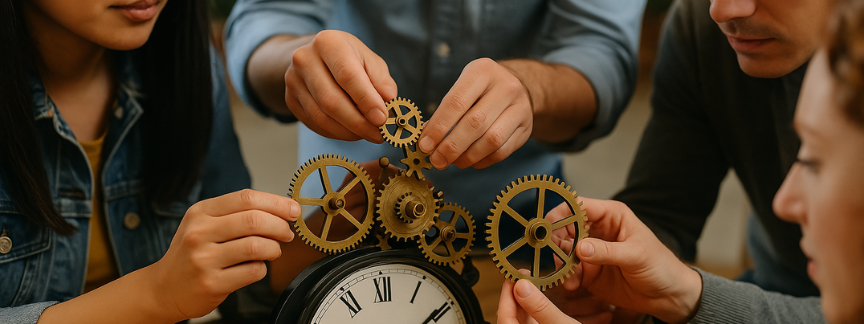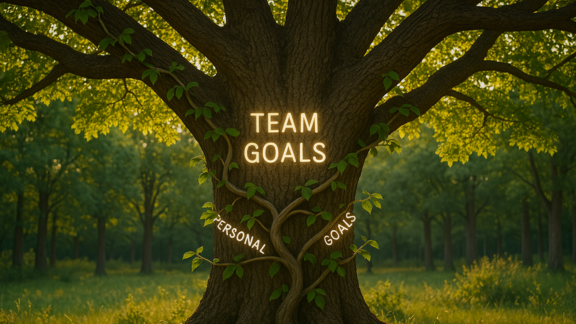
Chapter 4
Team habits
“Great teams do not hold back with one another. They are unafraid to air their dirty laundry.”
– Patrick Lencioni



Ritualized post-mortems
Schedule a debrief after completing each project, focusing on what can be systematized for future gains.
Consistency in these post-mortems helps the team adapt and refine processes organically.






Team health checks
Periodically measure morale and stress levels via quick surveys or open discussions.
By making it routine, teams address issues before they escalate and maintain a balanced, engaged workforce.






Knowledge-sharing sessions
Encourage each member to share an insight or best practice they’ve discovered—even if it’s outside their role.
This habit promotes cross-pollination of skills and breaks silos.






Connection rituals
Small daily or weekly habits that strengthen relationships—like “gratitude roundtables” or “coffee roulette” pairings—boost trust and empathy.
Over time, people feel more invested in collective success.






Personal growth goals within team goals
Align individual development targets (like learning a new skill) with broader team objectives.
Habitual personal goal-tracking ensures that as the team advances, members also evolve personally, fueling retention and satisfaction.






Feel free to share with your colleagues
Give feedback, ask questions or request new resources


